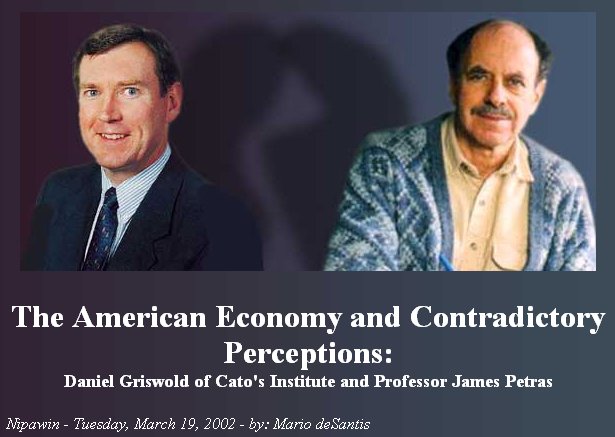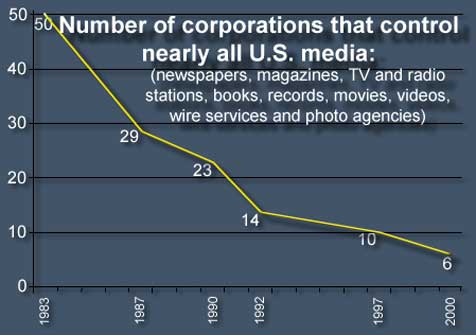Learning Stories
by
Mario deSantis
mariodesantis@hotmail.com
“I am a Canadian, free to speak without fear, free to worship in my own way, free to stand for what I think right, free to oppose what I believe wrong, and free to choose those who shall govern my country.” - -The Rt. Hon. John Diefenbaker, Canadian Bill of Rights, 1960
“The whole judicial system is at issue, it's worth more than one person.”--Serge Kujawa, Saskatchewan Crown Prosecutor, 1991
“The system is not more worth than one person's rights.”--Mario deSantis, 2002
Ensign Stories © Mario deSantis and Ensign
|
|
"The press... traditionally sides with authority and the establishment."--Sam Donaldson, ABC correspondent "Do not do unto others what you would not want done to you."--The Golden Rule To make sense of this confusing world we must construct our own truths, and these truths don't come necessarily from evidence as this evidence could have been staged to hide a real truth. As long as we experience a higher degree of secrecy in our governmental administration and as long as our media is becoming more and more concentrated, the more skeptical we must become of the underlying truths shown by the so-called evidence. I am really skeptical of the wars staged by the Bush administration in the name of securing freedom for the world as I think that these wars are instead a pure expression of economic and military power of the United States. I am asking the question if our corporate media is controlled and sanitized by corporate America and their friendly politicians. I cannot give an absolute answer and say for example that our corporate media is deceptive in representing our political, economic and social events. But what I can say is that in the first edition of The Media Monopoly published in 1983, author Ben Bagdikian stated that 50 corporations controlled the vast majority of all news media in the United States; today there is the realization that this number has fallen to six.
We have been finding out in these pages of Ensign that the United States has been experiencing a chronic foreign trade deficit in the order of $300-$400 billion per year along with the sanitization of some $750 billion per year of dirty money within a $10 trillion economy. And this realization prompted me to use the term "raping" in one of my articles to describe the obscene behaviour of both Corporate America and their friendly government. Whenever I learn that president George Bush wants to convert the foreign debts of poor developing countries in grants to be used for projects supporting health and education, I can really understand the compassion of this man who made his fortune peddling his 'Bush" name in the oil and energy industry. And this is not all, as we understand that the World Bank and the IMF work together as a cartel to keep all the debtor countries at ransom for their economic and social policies. Instead to devaluate the American dollar and help out our world wide economy, the Bush administration continues to provide a paternalistic "stick and carrot" economic policy for the benefit of the big corporations and their fortunate sons: wars against enemy countries, compassionate money to poorer countries, and no assistance for developing civil democracy at home and abroad. The corporate media doesn't talk about the chronic foreign trade deficit of the United States, it doesn't talk about how tax cuts for the rich increase inequality among American people, it doesn't talk about the economic relevancy of devaluating the American dollar. But our corporate media talks about waging wars to defend our freedom: our standard of living. Is our standard of living our freedom? Sometime ago I mentioned that it doesn't make sense to have our economy grow by enticing foreign investments in Canada when we ourselves are not able to make any savings. Today, with the above mentioned background, I want to reflect on the following two very contradictory statements, and hope that you readers would do the same and evaluate which one is closer to our humanity. Daniel T. Griswold, Associate Director of the Cato
Institute's Center for Trade Policy Studies James Petras, Professor of Sociology at Binghamton
University References Pertinent articles published in Ensign Media Reform Information Center http://www.corporations.org/media/ The Myth of the Global Economy, by Mark Weisbrot, co-director of the Center for Economic and Policy Research (www.cepr.net), in Washington, DC. March 12, 2002, Common Dreams http://www.commondreams.org/views02/0312-07.htm World Bank Opposes Changing Loans to Grants for Poor Countries, by Mark Weisbrot, column distributed to newspapers by Knight-Ridder/Tribune Information Services, March 19, 2002 America's Record Trade Deficit: A Symbol of Strength, by Daniel T. Griswold, February 21, 2001, Cato Institute's Center for Trade Policy Studies http://www.cato.org/dailys/02-21-01.html "Dirty Money" Foundation of US Growth and Empire. Size and Scope of Money Laundering by US Banks, by James Petras, Professor of Sociology, Binghamton University, Centre for Research on Globalisation, La Jornada, Mexico, 19th May 2001. Posted at globalresearch.ca 29 August 2001 http://globalresearch.ca/articles/PET108A.html |

